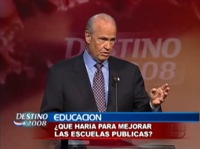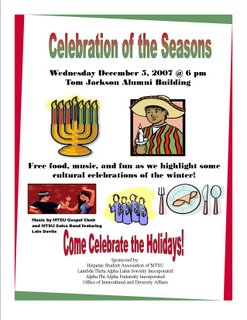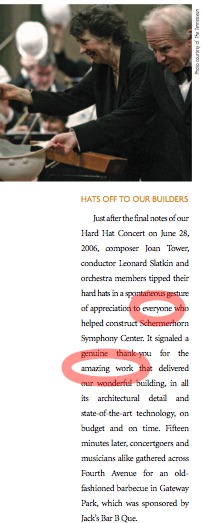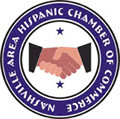
Spotlight on CCA adds to previous attention by United Nations, Amnesty International, ACLU, and Women's Commission for Refugee Women and Children
T. Don Hutto facility in Taylor, Texas houses families in former prison
A Nashville issue?In an era of family-dividing deportations, the immigration arm of the U.S. government has arranged for Nashville-based Corrections Corporation of America ("CCA") to house immigrant families together, but where and how the families are placed has been framed by some as a moral and human rights crisis.
CCA's T. Don Hutto Residential Center in Taylor, Texas, which for the past few years has housed families including pregnant women and children, has been the subject of a litigation settlement with the ACLU, a thwarted inspection by the United Nations, an investigative report by the Women's Commission for Refugee Women and Children, multiple vigils, petitions, and now a documentary called, "America's Family Prison."
Strong words
All of the above oppose the penal nature of the detention of families and children at Hutto, the CCA facility and former medium-security prison. The Women's Commission report says
here that
ICE chose to develop a penal detention model that is fundamentally anti-family and un-American.
The ACLU maintains
here that
detaining immigrant children at Hutto is inappropriate.
U.N. inspector Jorge Bustamante reported
here, after his visit to the U.S., that
accompanied and unaccompanied children are temporarily detained in adult detention facilities which do not adequately protect the rights of child migrants.
The documentary calls Hutto part of the
largest trend of family internment since World War II.
Authorized by Congress, implemented by Immigration and Customs Enforcement ("ICE")
How did the U.S. government decide to send families to repurposed prisons? The Women's Commission report offers the brief history below, saying that ICE, by using a former prison, improperly implemented a pro-family directive from Congress:
The recent increase in family detention represents a major shift in the U.S. government’s treatment of families in immigration proceedings. Prior to the opening of Hutto, the majority of families were either released together from detention or separated from each other and detained individually. Children were placed in the custody of the Office of Refugee Resettlement (ORR) Division for Unaccompanied Children’s Services, and parents were detained in adult facilities.
Congress discovered this and took immediate action to rectify it, in keeping with America’s tradition of promoting family values. It directed ICE to stop separating families and either to place them in alternative programs or to detain them together in nonpenal, homelike settings. Such Congressional directives were intended to preserve and protect the role of the family as the fundamental unit in our society. However, ICE chose to develop a penal detention model that is
fundamentally anti-family and un-American.
CCA's 2007 in review: profit jumps, closure threatened, attorney nominated to federal bench
The Hispanic Nashville Notebook reported on Hutto in March (
here), before some of the events described above. Other events since March include the following:
- CCA's third quarter financial report (profit jumps due in part to contracts with ICE);
- a threat by the county (since resolved) to force the facility's shutdown;
- this statement in June by Amnesty International: "Amnesty International urges DHS not to detain children. If there is ever justification to detain a child, it should be for the shortest time possible and in the least restrictive setting possible"; and
- the judicial nomination of CCA's top attorney, Gus Puryear, to a seat on the bench of the U.S. District Court for the Middle District of Tennessee.
Who is asking the questions in Nashville?
According to most reports, Nashville-based CCA is keeping its comments on Hutto to a minimum, with the most significant response being the settlement of the ACLU litigation and improved conditions at the facility. But have the executive team, the board, or the shareholders considered big-picture questions regarding the detainment of families and children in general? Has anyone at CCA headquarters asked whether, as Amnesty International asserts, child detention itself is improper? Was there a point when CCA's top attorney should have advised against the contracts to detain children at Hutto, as
one letter to President Bush asserts?
Beyond CCA itself, should Nashville be brought into the dialog about what its hometown corporation does for the federal government? The Nashville media
don't appear to have reported on Hutto, despite
significant coverage in Texas media. Middle Tennessee journalists (or their managers) are paid to know what their readers and viewers would find newsworthy, and that might not include the detention of families by a local company and the hubbub about it raised by groups in Texas and elsewhere. Or, maybe CCA has good answers to all of these questions, and Nashvillians would see no controversy.
Ultimately, it appears that the concerns that have been raised about a locally-owned facility located hundreds of miles away in South Texas have been, and may remain, a nonissue in Tennessee.
 Tango Nashville announced its recognition by The National Association of Latino Arts and Culture (NALAC) Fund for the Arts:
Tango Nashville announced its recognition by The National Association of Latino Arts and Culture (NALAC) Fund for the Arts:




 Photo by
Photo by 






 Photo by
Photo by  Nominations are due today for the second annual "Hispanic Nashville Noteworthy" Awards, which recognize exceptional people, groups, items, places, events, contributions, or achievements* by or related to Hispanic Nashvillians. The Noteworthy Awards are a project of the Hispanic Nashville Notebook.
Nominations are due today for the second annual "Hispanic Nashville Noteworthy" Awards, which recognize exceptional people, groups, items, places, events, contributions, or achievements* by or related to Hispanic Nashvillians. The Noteworthy Awards are a project of the Hispanic Nashville Notebook. From
From 
 This is a transcript of the responses of former U.S. Senator from Tennessee Fred Thompson at last night's Republican candidate presidential debate on the Spanish-language network Univision:
This is a transcript of the responses of former U.S. Senator from Tennessee Fred Thompson at last night's Republican candidate presidential debate on the Spanish-language network Univision:
 From
From  From the
From the 
 The Tennessean reported
The Tennessean reported 



 The Nashville Business Journal published
The Nashville Business Journal published 
 Update 11/24/07: Speaking of the illegal immigrant as the Samaritan,
Update 11/24/07: Speaking of the illegal immigrant as the Samaritan,